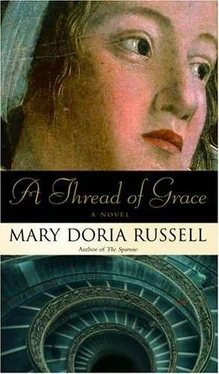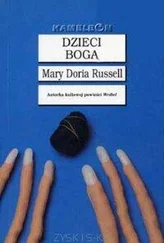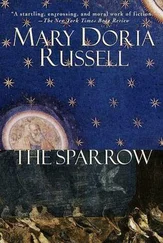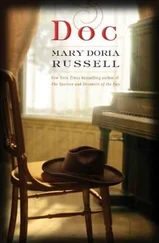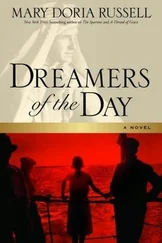“Claudia,” he tells her. “Italian is close to French, but easier to learn. Italians talk with their hands, their faces— they make it easy for strangers to understand.”
“You should teach me Italian while we walk.” She shifts her suitcase from one side to the other. “This’ll be my fourth language! German, French, Hebrew, and now Italian!”
How long has the road been her classroom? It seems a lifetime since she practiced penmanship at the kitchen table, while Czechoslovakia and Poland and Finland fell. “Will the Germans come here?” Claudette asked her mother when Holland was attacked.
“Belgium’s borders are very strong,” Paula said, “and King Leopold has a pact with the French. Finish your homework.”
A few days later the bombing began. The Blums packed. “Mama said they wouldn’t come here!” Claudette complained while Albert roped suitcases to the roof of their little Citroën. “Why do the Germans keep winning?”
“We expected trenches.” He yanked the knots tighter, while David wept and Jacques clambered into the backseat to claim a spot by the window. “Since 1919, we trained for trenches! This time the Germans came in tanks.”
Driving along the coast, Albert made Claudette memorize multiplication tables. She squabbled with her younger brothers most of the time, but had reached six fives when the family reached Coxyde. Everyone spilled from the cramped car. Paula and the children pulled off stockings and shoes and splashed into the waves. Albert negotiated an off-season rate for a month’s stay in a cottage they’d rented in happier times. War was almost unimaginable in the cheerful resort town, with its fresh paint and bright flowers and sea breeze.
Belgium’s defenses held for eighteen days. The Wehrmacht crossed the Meuse, and when they reached the Moselle River, the Blums packed again. “Five sixes are thirty, six sixes are thirty-six, seven sixes are forty-two,” Claudette chanted while the Citroën crawled through a stream of refugees headed for Paris. Albert pulled off the main highway onto a country road, only to be trapped at dusk in an immense traffic jam surrounding Dunkirk. They slept in the open that night, and woke to the roar of army vehicles pushing civilian automobiles into weedy ditches, clearing the way for the British retreat, and snapping the Citroën’s rear axle in the process.
The Blums trudged south on foot, joining thousands of Parisians now fleeing Hitler’s Blitzkrieg . “Six sevens are forty-two, seven sevens are forty-nine. Seven eights…” For the life of her, Claudette could not remember seven eights. “Fifty-six!” Albert would shout, lugging suitcases, with Jacques stumbling along beside him. Carrying David in her arms, Paula was already limping, but somehow she found the patience to say, “The numbers go in order, Claudette: five, six, seven, eight. You see the pattern? Fifty-six is seven eights.”
Claudette was working on nines when the blisters on her mother’s feet began to burst and bleed. Albert left Paula with the children in a little wooded valley at the edge of a good-sized village and found a doctor, who bandaged Paula’s feet and forbade her to walk another step. Using his influence with the railroad stationmaster, the doctor secured tickets for her and the boys on the next train south. The third-class carriage was horribly crowded, but at least Paula could ride, the two little ones on her lap. The family was to reunite in Nice.
France capitulated. Paula and the boys never arrived. Britain fought on alone. Claudette learned long division in a series of rented rooms, but geography became her passion as they moved east to smaller towns and cheaper quarters. When Japan joined the Italo-German Axis, when Yugoslavia and Greece and Russia and Bulgaria were invaded, when bombs rained on Britain and the Afrika Korps took Tripoli, she followed every move in an old atlas Albert had bought in a secondhand shop. Ringed by Italian garrisons, the Mediterranean Sea was a Roman lake for the second time in history. By the time Albert found their room in Sainte-Gisèle, the Third Reich occupied most of Europe, its armies were within sight of the Caucasus oil fields, and Rommel’s tank corps threatened the Suez Canal. From there, Hitler could disrupt British supply lines and open a sea link to Japan.
Albert was cheered by the Soviet Union’s resistance, guiltily elated when Pearl Harbor was attacked— at last, America would join the war! But that was when Claudette despaired. The Axis was invincible; the Americans and Russians could not be beaten. “If no one can lose, no one can win, and the war will never, ever end!” she sobbed. “Why won’t everyone just stop fighting? Papa, when can we go home?”
Albert Blum had no answer for her then. And now? Another year, gone. His wife and sons, still missing. And Claudette is learning Italian with a suitcase in her hand.
The sun is halfway to the horizon when the first Jews reach the trailhead. Many are accompanied by soldiers who’ve traded army backpacks for Jewish toddlers. Santino Cicala has tried to do the same, but the first little girl he picked up wailed with fright. Santino set her down, accepting the mother’s apology with a shrug and a grimace. A second attempt went just as badly. At nineteen, Santino Cicala is built like a dung cart— broad and low to the ground, and ugly enough to scare children.
Leaning his carbine against a rock, he lies back on fragrant crushed weeds and waits for someone older to help. Birdsong. Rustling leaves. Take away the Wehrmacht, he thinks, and a nap would be irresistible… A girl’s voice rouses him. “Duno thinks he’s so smart!” he hears without understanding her. “Just because he learned a few words from the carabinieri! I already know more than he does.”
A gentleman with her says something in French, and the girl replies in Italian, “ Sono, sei, è, siamo, siete, sono. Uno, due, tre, quattro, cinque. Piacere, signore! Mi chiamo Claudia Blum. Pleased to meet you, sir, I am Claudia Blum. Io sono di Belgium.”
“Belgio,” Santino corrects, on his feet and brushing bits of dry grass from his uniform. “ Tu sei di Belgio—”
Startled, she stops and stares at him. Green eyes, he thinks, thunderstruck. She is tall, with hair like copper wire. He looks down, away, anywhere but at her. “ Piacere, signorina. Cicala, Santino,” he says, introducing himself. She manages to smile politely. Hoping to draw attention from his face, Santino points to his boot. “ Italia? ” he prompts. She nods dumbly. “ Io sono di Calabria,” he says, pointing to the sole just west of the heel.
Her face lights up. “That’s where you’re from? Siete di Calabria?”
“ Sì! Molto bene! ” Slinging his carbine over a thick shoulder, Santino takes the girl’s bag in one square hand and turns his attention to the gentleman. “Signor Blum?” The old man nods. Santino gestures for his valise. “ Prego, signore. My pleasure!”
The gentleman hesitates, but the girl encourages him to hand over the suitcase, burbling, “ Molte grazie! Tante grazie! Beaucoup di grazie, Signor Cicala. Was that your name? Am I saying it right? We are so tired! You can’t imagine! How do you say ‘tired,’ Papa?”
“ Siamo stanchi. ” Albert hands over his bag. A gap-toothed smile transforms the homely soldier into a gigantic six-year-old. Charmed, Albert touches his chest. “Blum, Alberto,” he says. “ La mia figlia: my daughter, Claudia. Mille grazie, Santino.”
With nothing to carry, the Blums can manage the pace the soldier sets: climb half an hour, rest five minutes, then climb again. The sun has nearly disappeared when they hear a low rumbling in the distance. “Just what we need!” Claudette says sourly. “A thunderstorm!”
Читать дальше
